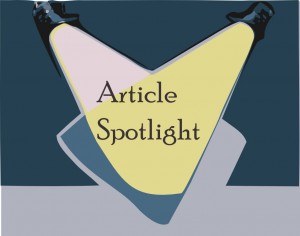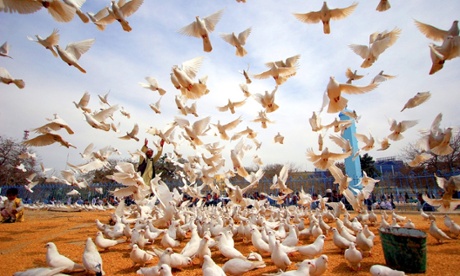 Today’s Article Spotlights consider the role of regional identities and centre-periphery relations in relation to contemporary nationalism, as well as the conceptual challenges facing scholars of nationalism as its meanings are necessarily being redefined. These Spotlights will introduce further writing from SEN Online that will take stock of the recent Scottish independence referendum result and its implications.
Today’s Article Spotlights consider the role of regional identities and centre-periphery relations in relation to contemporary nationalism, as well as the conceptual challenges facing scholars of nationalism as its meanings are necessarily being redefined. These Spotlights will introduce further writing from SEN Online that will take stock of the recent Scottish independence referendum result and its implications.
Anthony Smith’s essay from 2008 surveys the state of scholarship on nationalism and its likely future directions.
Anthony D. Smith, The Shifting Landscapes of ‘Nationalism’, Volume 8, Issue 2, 2008, pp. 317-330.
The field of study that comprises nations and nationalism is often seen as riven by a conflict between ‘modernists’ and their opponents. In fact, the field is far more fragmented than such a characterisation suggests. From the very first normative critical essays 150 years ago, it has been composed of shifting landscapes in which different approaches and perspectives overlap and cross-cut each other like intersecting monologues. While there was a short period of engagement in the 1980s, a ‘classic debate’ between modernists, perennialists and ethno-symbolists who embraced a macro-analytic framework and a causal-historical methodology, the familiar landscape has radically shifted to reveal a series of deconstructionist strategies and techniques; and while rational choice theories, among others, continue to embrace causal-historical analysis, there has been a rejection in many quarters of both macro-analytic narratives and causal-historical analysis. The new anti-essentialist strategies include feminist critiques, the study of everyday nationhood, the hybridisation of national identities, and debates about the ‘ethics of nationalism’ which echo earlier critiques. Above all, there is a new concern with the application of globalising trends to nations and nationalism, and especially with the role of nations without states, and the impact of supranationalism, large-scale migration and ‘religious nationalisms’.
Kees Terlouw’s essay considers the relationship between contemporary regional identities and globalization, with a comparative focus on the Netherlands and Germany.
Kees Terlouw, Rescaling Regional Identities: Communicating Thick and Thin Regional Identities, Volume 9, Issue 3, 2009, pp. 452-464.
Novel forms of regional identities emerge in response to global competitive pressures and challenges to the nation-state. Regions have to react and position their identity in relation to the rescaling of statehood. Especially, the growing autonomy of regional administrations makes support from local stakeholders more important. Communicating a specific regional identity is one of the instruments regional administrations use for mobilising support. However, at the same time old, traditional regional identities become more fluid. Regional identity traditionally focuses on shared past and specific social and cultural characteristics. Especially globalisation and individualisation undermine this traditional thick regional identity. Regional administrations have to adjust their communicated regional identity. By communicating the image of a future oriented region that can face the challenges of global competition, they increasingly use a thin regional identity. This paper analyses different case studies from the Netherlands and Germany.
Alberto Spektorowski’s essay considers the role that regionalism has played in the discourse of contemporary right-wing and extremist nationalism in Europe.
Alberto Spektorowski, Ethnoregionalism, Multicultural Nationalism and the Idea of the European Third Way, Volume 7, Issue 3, 2007, pp. 45-63.
While the idea of a Europe of its peoples, or a post-nation-state ‘regionalist Europe’ is largely applauded by liberal, radical democratic, and post-colonial theorists, who welcome this development as an antidote to narrow nationalism, ideologues of the New Right had adopted this idea to their exclusionist political design. Based on what can be defined as ‘multiculturalism of the Right’, the New Right proposes a new European nationalist resurrection based upon the idea of the reemergence of multiple European organic identities that would set a cultural barrier against immigrant communities. In order to elaborate this plan the New Right makes use of the intellectual contribution of old anti-liberal integralist sources at the fringes of fascism. The latter set the path for a European ‘third way’ in the 1930s and the New Right attempts to reestablish this trend in a post-modern Europe. This article does not claim that Europe of the peoples is an anti-liberal project, but asks to heed ‘unexpected’ political uses of the idea.
Finally, this piece from Diego Muro and Alejandro Quiroga considers the nation-building process in modern Spain from a centre-periphery perspective. This essay will prove especially interesting to those thinking about the implications of the rise of Scottish nationalism for regional nationalist and secessionist movements in Spain, such as that of Catalonia.
Diego Muro and Alejandro Quiroga, Building the Spanish Nation: The Centre-Periphery Dialectic, Volume 4, Issue 2, 2004, pp. 18-37.
This paper provides an historical overview of Spain’s nation-building process from the nineteenth century to the present time. Using Stein Rokkan’s centre-periphery paradigm, the paper argues that a pervasive feature in contemporary Spanish history is the dialectical relationship between the Spanish nation and the peripheral nations of Catalonia and the Basque Country. From this perspective, the Spanish nation-building process is understood as one of the main triggering events for the emergence of peripheral nationalisms at the end of the nineteenth century. In the twentieth century, tensions between the core and the periphery help to explain why Spain has a quasi-federal institutional structure. Recent interest in ‘constitutional patriotism’ for example, can only be understood in relation to Catalan and Basque initiatives to reform their autonomy status.
Article Spotlights compiled by Dr Shane Nagle.





